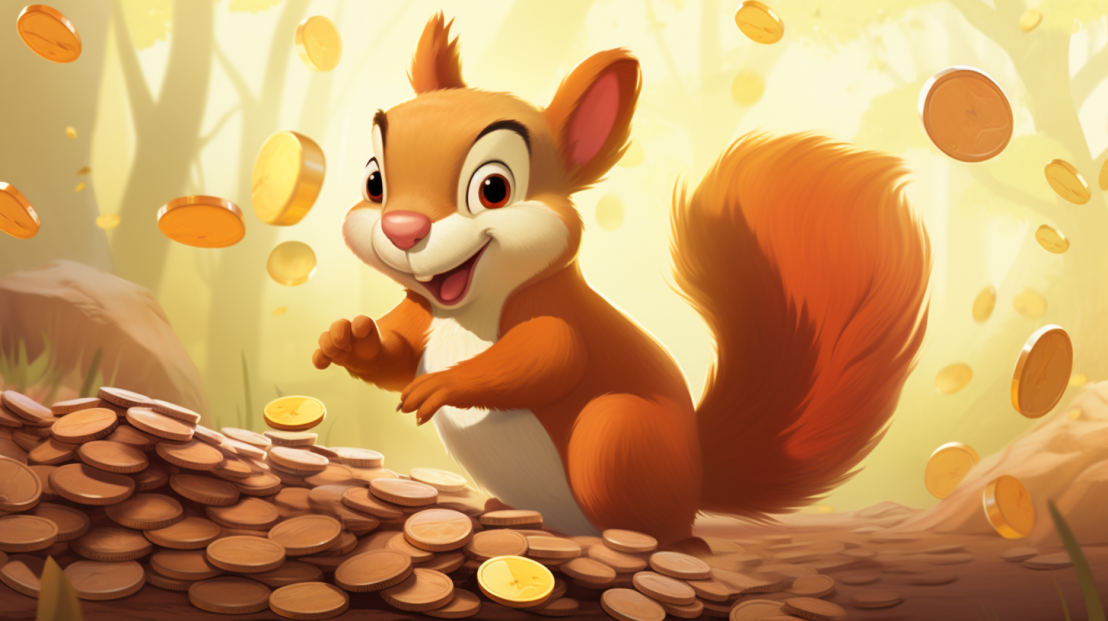Squirrels are known for their curiosity and their penchant for exploring various food sources. As such, it’s natural to wonder if they can partake in some of the treats we enjoy, such as chocolate. The question of whether squirrels can eat chocolate is an important one, as it pertains to the overall well-being and health of these adorable creatures.
It’s worth noting that while squirrels may be attracted to the scent and taste of chocolate, it is not recommended to offer them this particular treat. Chocolate contains theobromine, a compound that can be harmful to animals, including squirrels. The effects of theobromine can be even more pronounced in squirrels due to their smaller size and inability to metabolize it effectively. Therefore, it is crucial to keep chocolate out of their reach to prevent any potential harm.
Theobromine toxicity is a significant concern when it comes to squirrels consuming chocolate. This compound affects the nervous system, cardiovascular system, and digestive system of squirrels. Symptoms of theobromine poisoning may include restlessness, increased heart rate, muscle tremors, diarrhea, and even seizures. The severity of these symptoms depends on the amount of chocolate ingested and the size of the squirrel.
Ingesting chocolate can also lead to dehydration in squirrels. Chocolate contains high levels of sugar and fat, which can increase their thirst and potentially cause dehydration. Additionally, squirrels may consume excessive calories from chocolate, leading to weight gain and obesity. This can have detrimental effects on their overall health and increase the risk of developing other health issues.
With these potential risks in mind, it is essential to take immediate action if you suspect or witness a squirrel consuming chocolate. The first step is to remove the chocolate to prevent further intake. Next, closely monitor the squirrel for any signs of distress or unusual behavior. If concerning symptoms are observed, it is important to contact a wildlife rehabilitator or a veterinarian specialized in small animals for guidance.
It is crucial to note that inducing vomiting in squirrels is not advisable in cases of chocolate ingestion. Squirrels have a delicate respiratory system that may be adversely affected by the process. However, providing the squirrel with clean drinking water can help mitigate the risk of dehydration.
While it’s clear that squirrels should avoid chocolate, there are plenty of safe and enjoyable alternatives for them to enjoy. Nuts, such as almonds, walnuts, and hazelnuts, are an excellent choice for squirrels. These can be offered as a snack, either on their own or mixed in with their regular feed. Just ensure that the nuts are unsalted and free from any added flavors or seasonings.
Another option for squirrels is fruits. They have a sweet tooth for fruits like apples, pears, and strawberries. Cut the fruits into small, bite-sized pieces, which can make them easier for squirrels to consume. Additionally, seeds like sunflower seeds, pumpkin seeds, and sesame seeds are a healthy and satisfying snack for squirrels. These can be scattered in their feeding area or placed in feeder stations to provide them with enrichment.
By providing safe and appropriate food options for squirrels, we can ensure their well-being and mitigate the risks associated with their natural curiosity for human treats like chocolate. Remember, the health of these delightful creatures should be a top priority, and by following the guidelines presented here, you can contribute to their overall welfare.
In conclusion, it is crucial to keep chocolate away from squirrels to prevent any potential harm or health risks. The theobromine content in chocolate can be toxic to squirrels, leading to various health issues. Theobromine toxicity can affect their nervous system, cardiovascular system, and digestive system. This can result in symptoms such as restlessness, increased heart rate, muscle tremors, diarrhea, and even seizures.
Another potential risk of squirrels consuming chocolate is dehydration. Chocolate contains high amounts of sugar and fat, which can increase their thirst and potentially lead to dehydration. Additionally, the consumption of chocolate can contribute to excessive calorie intake, leading to weight gain and obesity in squirrels. These health issues can have long-term detrimental effects on the overall well-being of squirrels.
If you ever suspect or witness a squirrel consuming chocolate, it is important to take immediate action. Remove the chocolate from their reach to prevent further ingestion. Monitor the squirrel closely for any signs of distress or unusual behavior. If you notice any concerning symptoms, seek guidance from a wildlife rehabilitator or a veterinarian specialized in small animals.
When it comes to providing treats for squirrels, there are plenty of safe and enjoyable alternatives to chocolate. Nuts are a great option, as squirrels naturally enjoy them. Almonds, walnuts, and hazelnuts are nutritious options that can be offered as a snack. Just make sure they are unsalted and free from any added flavors or seasonings.
Fruits are another delightful treat for squirrels. Apples, pears, and strawberries are among the fruits that squirrels enjoy. Cut them into small, bite-sized pieces to make it easier for squirrels to consume. This also helps prevent choking hazards.
Squirrel feeders can be a great addition to your backyard to attract and provide nourishment for squirrels. You can fill them with a variety of nuts, seeds, and dried fruits to keep the squirrels well-fed and entertained.
In addition to treating squirrels with safe foods, it’s important to create a suitable environment for them. Providing an ample supply of fresh water, natural vegetation, and suitable shelter will encourage squirrels to thrive and stay away from potential risks.
Squirrels are fascinating creatures and an important part of our ecosystem. While their curiosity may lead them to investigate human treats like chocolate, it is vital to remember that chocolate can be harmful to their health. By educating ourselves and taking proactive measures to prevent squirrels from accessing chocolate, we can contribute to their overall well-being and ensure their continued presence and enjoyment in our surroundings.
Remember, squirrels have unique dietary requirements, and it’s our responsibility as caretakers of wildlife to provide them with safe and appropriate nutrition. Let’s celebrate the fascinating world of squirrels and prioritize their health and welfare.
Hey there, fellow nature enthusiasts! I’m Mark Gray, the passionate owner of OutdoorAnimals.com, a hub dedicated to uncovering the incredible world of outdoor animals. Whether you’re a hiker, a four-wheeler, or just someone who revels in the beauty of the great outdoors, you’re in the right place. I seek to understand all varieties of animals, from the great elk to the simple mouse, my goal is to write and share this knowledge with the public.

